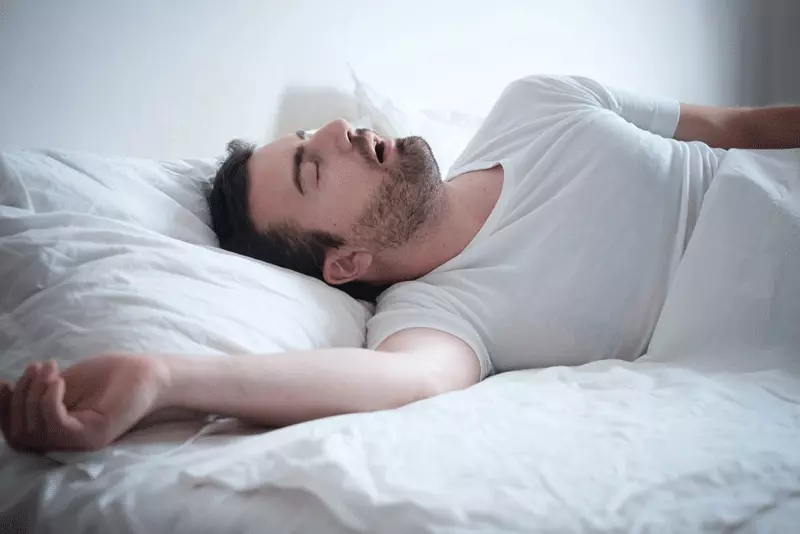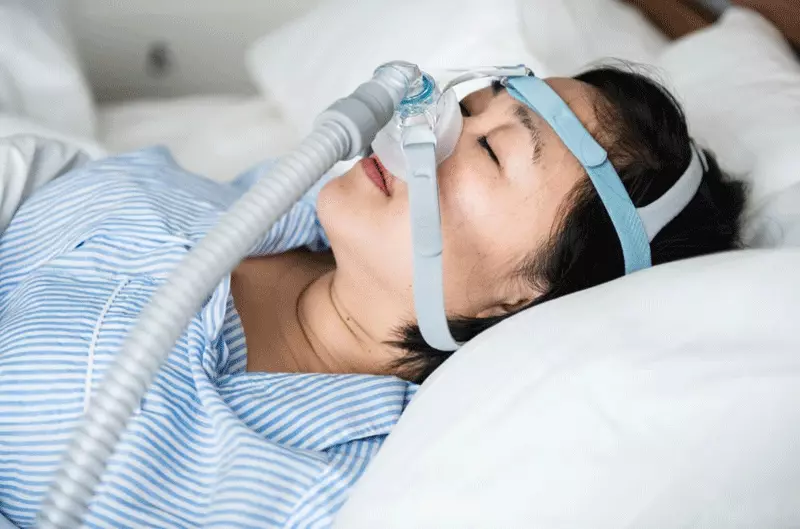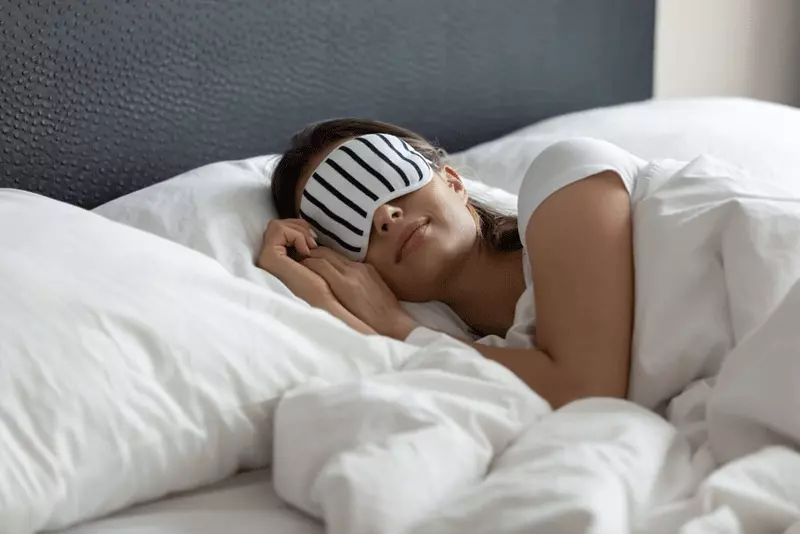Effective and Immediate Strategies for Snoring Reduction: A Comprehensive Guide
Jun 26th 2023
Snoring can be a significant obstacle to a good night's sleep for the snorer and those around them. It's more than just a nighttime nuisance; it can lead to daytime fatigue, irritability, and numerous health problems. Fortunately, there are immediate steps to reduce snoring that can improve sleep quality and overall health. This comprehensive guide covers a range of snoring reduction strategies, from lifestyle changes to anti-snoring devices and even some natural remedies.
Understanding Snoring

Before delving into the solutions for snoring, it's essential to understand what causes it. Snoring is caused by the narrowing of your airway, either from poor sleep posture or abnormalities of the soft tissues in your throat. In simpler terms, snoring happens when airflow through your mouth and nose is physically blocked.
Primary Causes of Snoring

Some of the primary causes of snoring include:
Obesity:Overweight individuals tend to have extra throat tissue, which can contribute to snoring.
Age: Aging leads to a loss of muscle tone in the throat, increasing the chances of snoring.
Alcohol consumption:Alcohol relaxes throat muscles, increasing the chances of snoring.
Nasal and sinus issues: Blocked airways or a stuffy nose make inhalation difficult and create a vacuum in the throat, leading to snoring.
Knowing these causes helps target strategies for snoring reduction.
Immediate Steps to Reduce Snoring
Now that we've explored the main causes let's immediately reduce snoring.
Lifestyle Modifications for Snoring Reduction

One of the first approaches to reducing snoring is lifestyle modification.
Weight loss: If you're overweight, losing even a little weight can reduce fatty tissue in the back of the throat and decrease, or even stop, snoring
Quit smoking: If you smoke, quitting can help. Smoking irritates the nose and throat membranes, which can block the airways and cause snoring.
Avoid alcohol: Avoid alcohol for at least two hours before bed. Alcohol can relax the throat muscles, causing you to snore.
Sleep position: Changing your sleep position can help reduce snoring. Lying on your back can cause your tongue to fall backward into your throat, narrowing your airway and partially obstructing airflow.
Anti-snoring Devices and Products

If lifestyle changes don’t help, a variety of anti-snoring devices and products are available that can help manage snoring.
Nasal strips: These are adhesive strips applied to the bridge of the nose to increase the space in the nasal passage, which can help reduce snoring.
Oral appliances:Dentists can design devices that help keep the airway open, reducing snoring by bringing your lower jaw forward during sleep.
CPAP machine: A Continuous Positive Airway Pressure machine is used mainly to treat sleep apnea but can also effectively reduce snoring
ZYPPAH: An FDA-cleared, self-molded, boil-and-bite oral appliance that combines two solutions to snoring: tongue stabilization and mandibular repositioning. This appliance features a patent-pending elastic that holds and stabilizes the tongue to prevent it from falling back into the throat during sleep. It also repositions the lower jaw forward to partially open the airway and reduce snoring sounds
The ZYPPAH Anti-Snoring Device

The ZYPPAH is more than just an ordinary oral appliance; it's an innovative, dual-action device designed to target the root causes of snoring.
Tongue Stabilization
Firstly, the ZYPPAH uses a unique, patent-pending elastic to hold and stabilize the tongue, preventing it from falling back into the throat and blocking the airway during sleep. None of the other snoring devices on the market have this feature, only ZYPPAH. This tongue relaxation is the primary cause of snoring, and it's why snoring is often louder when you sleep on your back.
Mandibular Repositioning
Secondly, the ZYPPAH features Mandibular Advancement, a tried and true method for reducing snoring. Moving the lower jaw forward from its normal position during sleep improves airflow and snoring sounds decrease. While this technique can be effective, there are limits to how far you can advance your lower jaw. Thankfully, the ZYPPAH is designed as a boil-and-bite mouth guard to suit your teeth.
Misconceptions about Snoring
There is a common misconception that the nose causes snoring. If this were true, people would snore during the day when they breathe, which they don't. Instead, snoring only occurs when the tongue, a muscle that relaxes during sleep, falls back and blocks the airway. This blockage creates turbulent air, vibrating your mouth and nose and making a snoring sound. The ZYPPAH stabilizes your tongue, offering a unique and effective solution to snoring.
For an independent review of the ZYPPAH anti-snoring device, check out SnoringHQ.
Natural Remedies

For those interested in natural remedies, there are several options worth considering:
Hydration: Drinking plenty of fluids can help reduce snoring by lessening the stickiness of the nose and soft palate secretions.
Humidifier: Dry air can irritate membranes in the nose and throat, so having a humidifier in the bedroom can help reduce snoring.
Peppermint Oil and Goldenseal: If your snoring occurs because of the chest or nasal congestion, pure peppermint oil can help relieve the congestion . Sleep hygiene: Quality sleep can go a long way in reducing snoring. Ensure your bedroom is quiet, dark, and cool, and stick to a regular sleep schedule.
The Impact of Reducing Snoring
Reducing snoring can lead to more restful sleep, higher daytime energy levels, and significant mood and general health improvements.
Better Sleep Quality

By reducing snoring, you can significantly improve the quality of your sleep. Better sleep can improve memory, a stronger immune system, and overall mental health.
Increased Daytime Energy

Snoring can disrupt your sleep, leading to daytime fatigue. By addressing the problem, you'll likely find that your energy levels during the day increase, improving productivity and mood.
Improvement in Mood and General Health

You can significantly improve your mood and general health by reducing snoring and improving your sleep. In addition, good quality sleep is linked to a lower risk of heart disease, diabetes, and depression.
Frequently Asked Questions about Snoring
Is snoring a sign of a serious health problem?
Snoring can be a sign of a serious condition known as obstructive sleep apnea. However, not everyone who snores has sleep apnea. If your snoring is accompanied by symptoms like excessive daytime sleepiness, morning headaches, or pauses in breathing during sleep, consult a healthcare provider.
Can children have problems with snoring?
Yes, children can also snore and have sleep apnea. If your child snores frequently and has symptoms like difficulty concentrating or behavioral issues, it's worth consulting a pediatrician.
How is snoring diagnosed?
Snoring is usually reported by the individual's bed partner or other family members. However, a sleep study may be required to diagnose the underlying cause of the snoring or identify if it's linked to sleep apnea.
Are there surgeries to stop snoring?
Several surgical options can help reduce snoring, such as UPPP (Uvulopalatopharyngoplasty), Thermal Ablation Palatoplasty (TAP), tonsillectomy, and adenoidectomy. However, surgery should be considered a last resort when other treatments have failed.
Does everyone snore?
No, not everyone snores. However, according to the National Sleep Foundation, about 90 million American adults snore 6. In addition, snoring becomes more common as we age and is more common in men than women.
